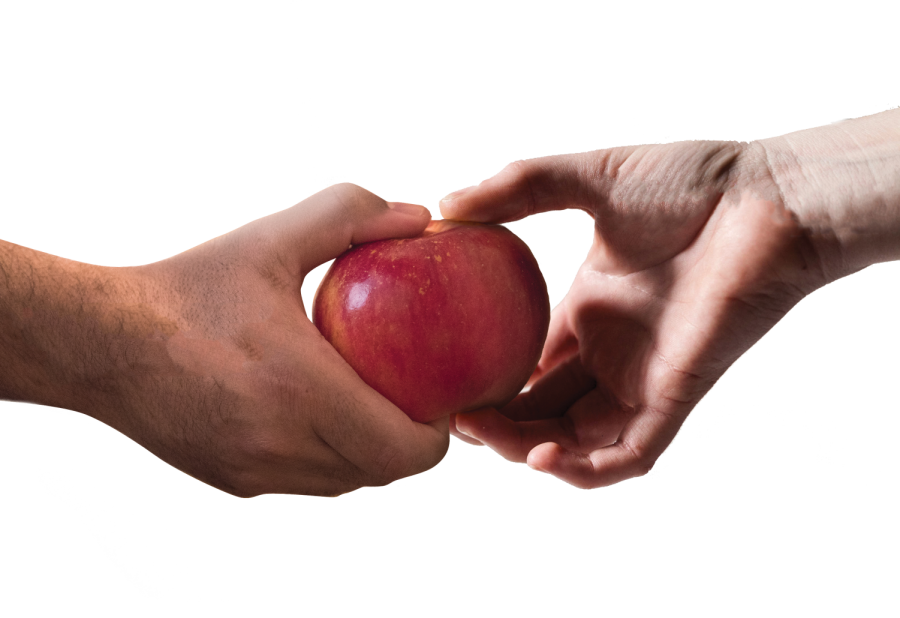WSU sues over Cosmic Crisp
Agriculture tech company claims university violated contract, WSU counter sues
March 19, 2018
WSU filed a countersuit in response to a lawsuit brought against the university by an agriculture technology company over a new variety of apple.
A lawsuit filed in King County by Phytelligence on Feb. 26 claims that WSU broke the terms of their contract that deals with the Cosmic Crisp apple variety, said Phil Weiler, WSU vice president of marketing and communication. The contract laid out a research agreement for the apple that comes from the WA 38 tree.
WSU associate professor Amit Dhingra formed Phytelligence, where he now presides as chief science officer, in 2011 to commercialize growing technology he developed. The propagation technology that he researched allowed for quicker and better growing of the WA 38 tree, according to court documents.
The contract allowed Phytelligence to grow as many trees as it wanted with strict limitations barring the company from selling without a license, transferring or otherwise disclosing information about the tree and its apples. A series of emails between Phytelligence’s then-CEO Chris Leyerle and Tom Kelly, a WSU technological licensing associate, confirmed Leyerle’s understanding of this agreement, according to court documents.
In their lawsuit, Phytelligence claimed that the company that manages legal issues with growing WA 38 commercially on behalf of WSU would not grant them a license. Phytelligence said WSU violated their original agreement, which gave them an option to produce the tree and its apples commercially.
They said WSU left the company out of talks with the companies WSU gave the licensing rights to, Proprietary Variety Management and its subcontractor Northwest Nursery Improvement Institute, according to the documents.
Phytelligence also claimed PVM granted a license to a company owned by Lynnell Brandt, current president of PVM and former president of the NNII, according to court documents.
Current Phytelligence CEO Ken Hunt said via email that due to the restrictions preventing them from selling the trees commercially, “significant demand from apple growers, particularly in Washington state, continues to be unmet.”
Weiler said WSU required businesses to obtain these licenses to ensure the quality of the apples that would be sold using the Cosmic Crisp brand name.
Following unsuccessful negotiations between Phytelligence and WSU, he added, the school ended its research agreement with the company, and demanded the destruction or return of all plants and other materials related to the trees.
WSU denied the breach-of-contract allegations Phytelligence filed, and added in its counterclaim, filed March 8, that the company broke the research agreement by selling the plants to another company without permission. The university also accused Phytelligence of portraying the school’s actions in a misleading way, trademark infringement and violating the Consumer Protection Act.
Weiler said the university felt the need to sue to protect people outside of the university, as well as WSU itself.
“Not only is it the intellectual property of Washington State University that is being threatened,” he said, “but actually the research that led to the development of this apple has been paid for by Washington growers.”
WSU professor Bruce Barritt started the research that created Cosmic Crisp in 1998. The university received a patent on the apple tree breed that produces Cosmic Crisp in 2014, according to court documents.
The new apple variety boasts many features that could make it successful, like not browning quickly and having a shelf-life of over a year, according to a WSU News release.
This sets the apple apart from any other on the market, Weiler said.
“The reason that this is a big deal,” he said, “is that by all accounts, this is going to be probably the biggest launch of an apple variety, certainly in our lifetimes.”
WSU’s suit claims that Phytelligence did not try to obtain a license before selling some of the trees, leading to the university’s decision to end the agreement.
Hunt said in an email that the company did not sell the trees, but instead stored about 200 Cosmic Crisp budwoods at the Evans Fruit fields to make room in its greenhouses and prepare the trees for Evans and potential growers. Once they realized they would not be able to get their license in time, he added, they returned the budwoods to Phyteligence property which is where they will remain until the issue is resolved.
WSU seeks damages for patent infringement and contract violations. The suit argues that a jury trial is necessary to determine how much compensation is appropriate.
Hunt and Phytelligence seek similar damages.
“We’re seeking confirmation WSU breached the original propagation agreement, issuance of a license from WSU or PVM to propagate the Cosmic Crisp for commercial sale, an award of damages in an amount to be proven at trial, and an award of costs and fees authorized by law or in equity,” Hunt wrote.
Hunt added that the company would like to resolve the matter peacefully.
“We recognize and value WSU’s broad and continuing support of Phytelligence,” he wrote. “We are continuing to work directly with WSU to identify a mutually beneficial resolution.”
[pdf-embedder url=”https://dailyevergreen.com/wp-content/uploads/2018/03/373702576-Washington-State-University-vs-Phytelligence.pdf”] [pdf-embedder url=”https://dailyevergreen.com/wp-content/uploads/2018/03/373705895-Phytelligence-vs-WSU-counterclaim.pdf”] [pdf-embedder url=”https://dailyevergreen.com/wp-content/uploads/2018/03/373702785-Phytelligence-vs-Washington-State-University.pdf”]








